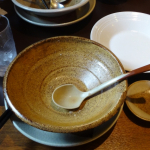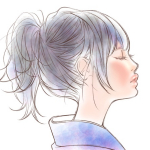Want to say “Thank you” in Japanese?

Are you visiting or living in Japan now and want to express your appreciation in Japanese?
Or do you want to than ...
What does “daijoubu” mean? Daijobu だいじょうぶ 大丈夫

Japanese often use the word “daijoubu(だいじょうぶ、大丈夫)”.
Most Japanese use the word not only in casual set ...
What does “gochisousama” mean? What in English? ごちそうさま

Japanese often say the following phrases when having a meal.
All three have the same meaning.
“Gochis ...
What does “suteki” mean? How to say it in English? すてき 素敵

Ano joyuu san, suteki!
あの女優さん、ステキ!
Konya no kimi wa totemo suteki dayo.
今夜の君はとても素敵だよ。
Suteki na d ...
What does “daisuki” mean? What in English? 大好き

Daisuki(だいすき、大好き) means “liking something or somebody a lot” or “loving something or somebody” ...
What does “hekomu” mean? in English?ヘコむ?凹む?

Kinou sigoto de misutta-, hekomu wa-.
昨日仕事でミスったー。ヘコむわー。
そんなにへこむなよー。
Sonna ni hekomuna yo-.
“ ...
What is the meaning of “hokkori”? What do you say in English? ほっこり

Aa-, hottori shita-.
あぁー、ほっこりしたー。
Hokkori shashin ni iyasareru wa-.
ほっこり写真に癒されるわー。
Mata anohito h ...
What does “wakaru” mean? What in English? わかる

Aa-, wakaru wakaru.
あぁー、分かる分かる。
Kono imi wakaru?
この意味分かる?
“Wakaru(わかる、分かる)” is a word ...
What does “busu(ブス)” mean?

Did you hear the word “busu(ブス)” somewhere?
In Japanese, “busu” means an ugly woman. It ...
What does “zehi” mean in conversational sentences? ぜひ 是非

Zehi mata aimashou.
ぜひまた会いましょう。
Zehi kondo nomi ni ikimashou.
ぜひ今度飲みに行きましょう。
Zehi mata sasotte ku ...